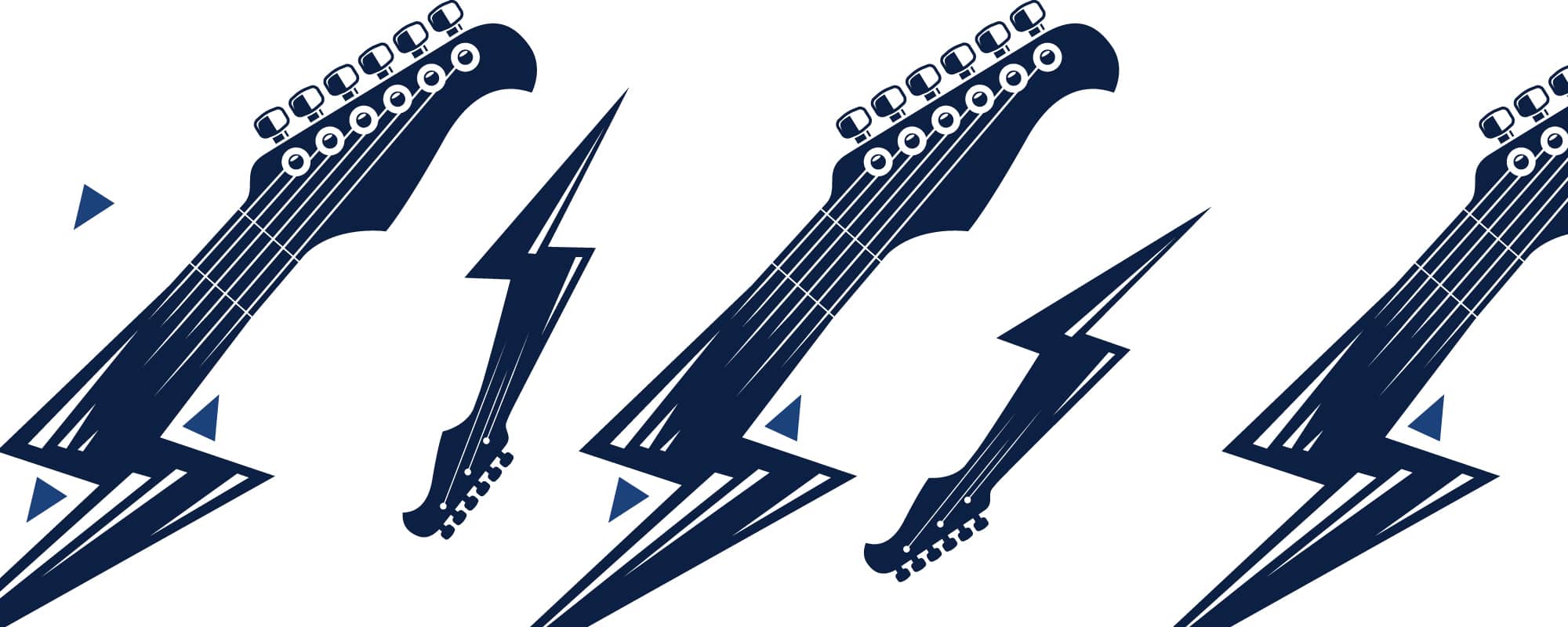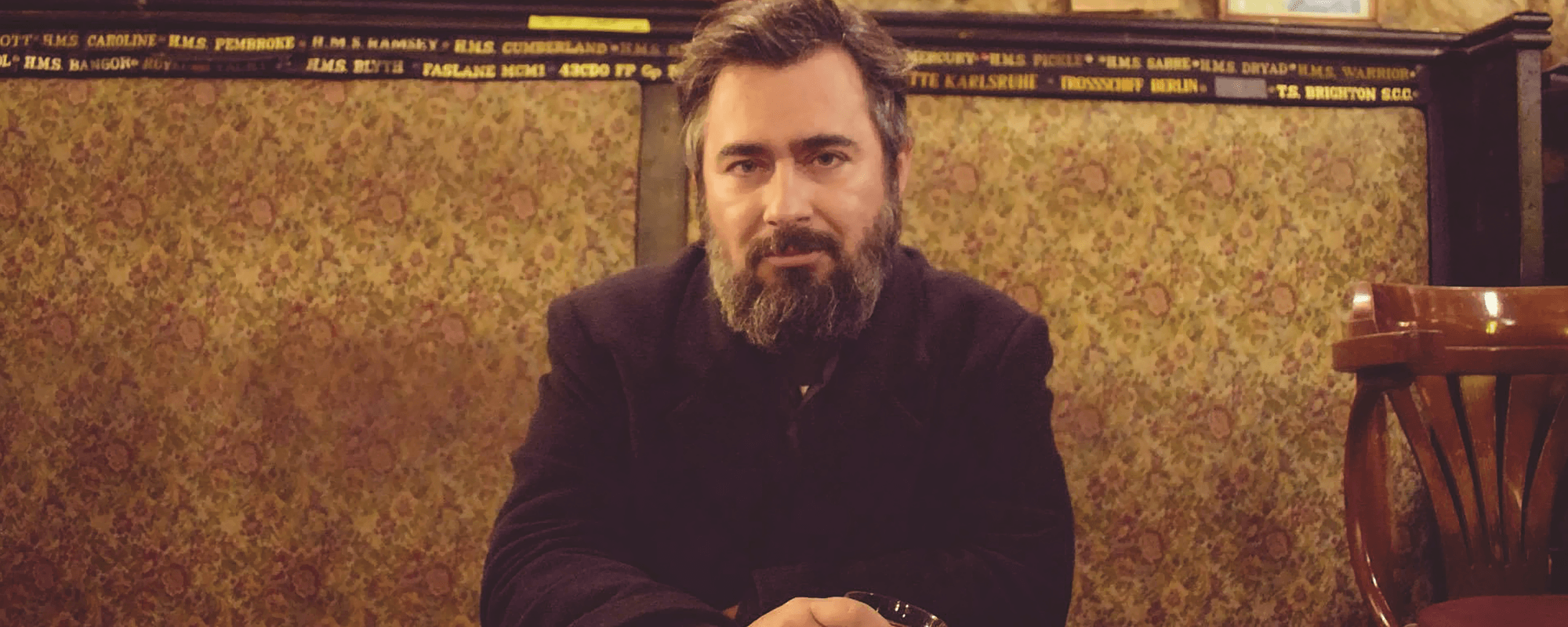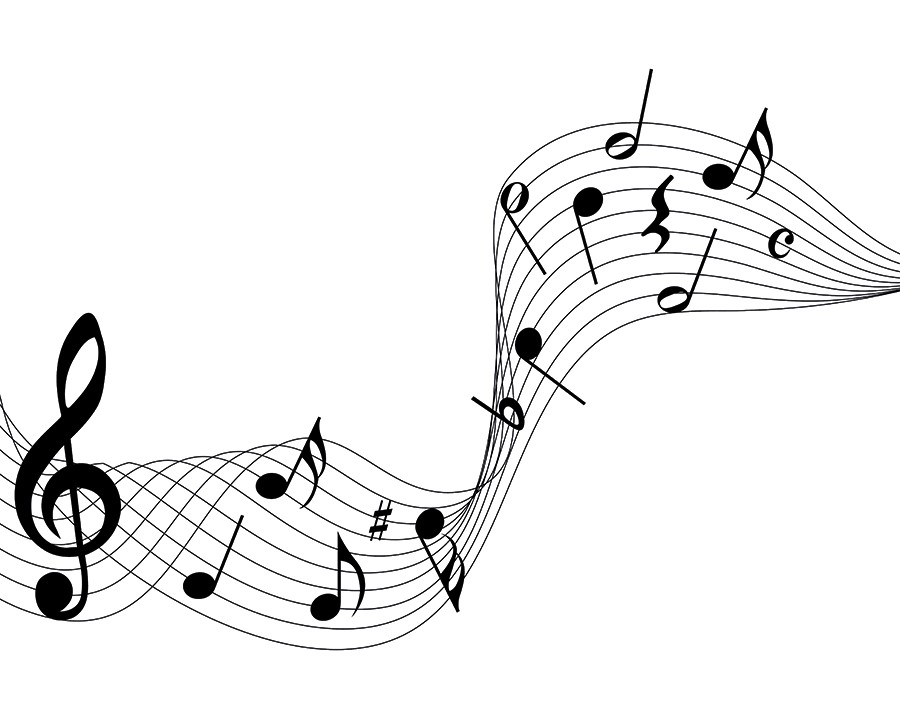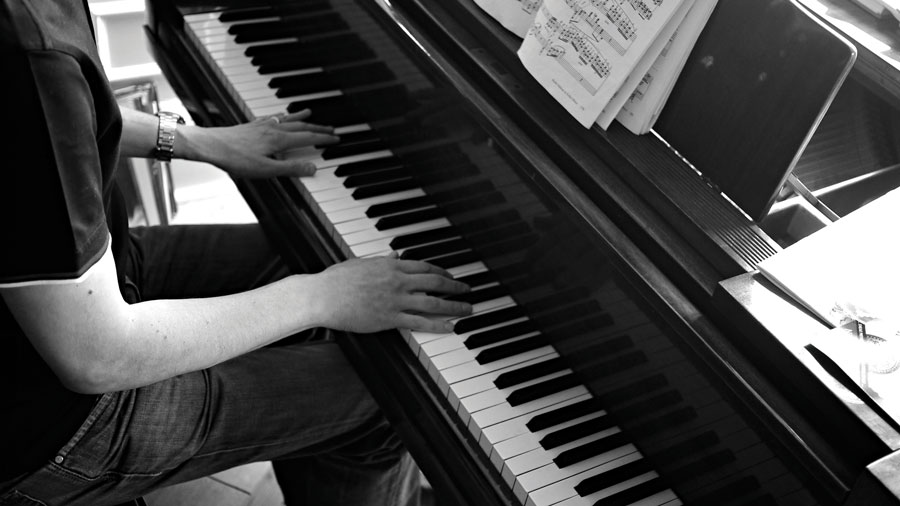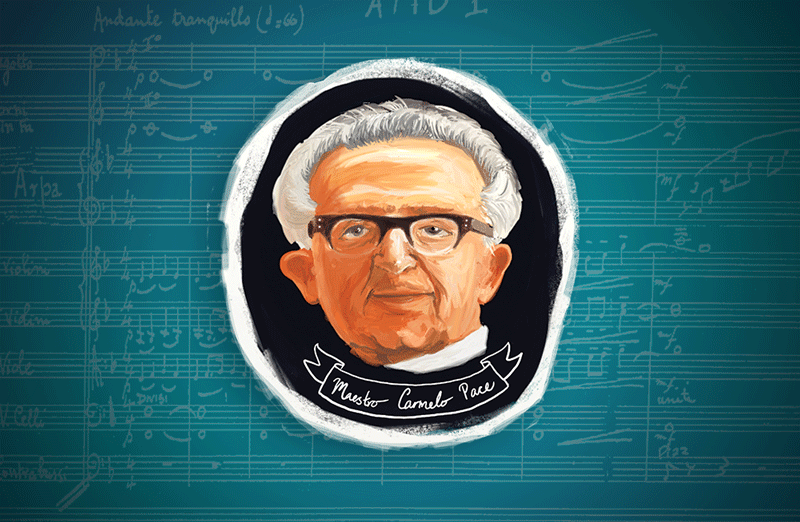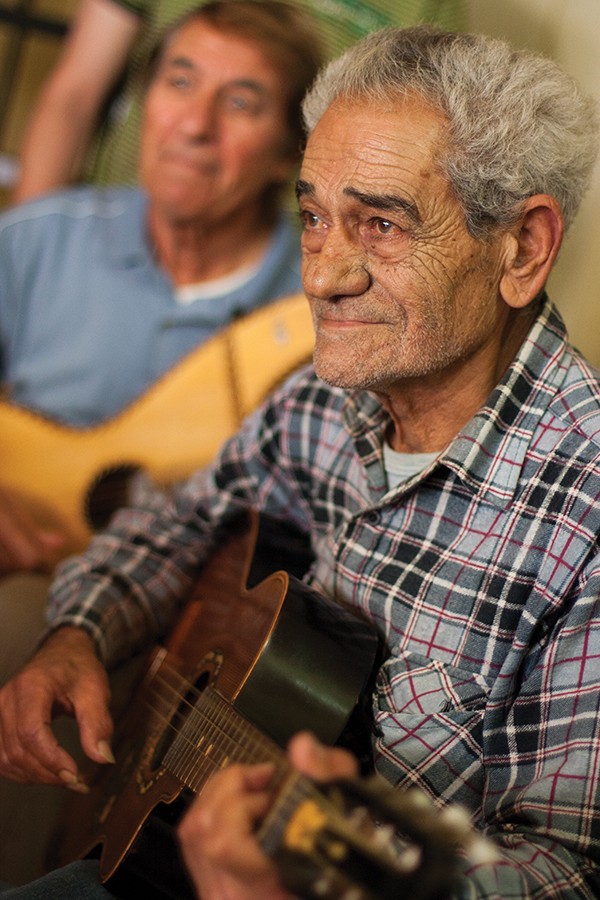If you are one of the 515 million (monthly) active users who listen to music on Spotify, then you know how music can help you get through the day. Today, Spotify has over four billion playlists to choose from whilst studying, so get your study mood on: shuffle, play, and switch the brain button on while you read about why music is an essential part of our lives!
Continue readingDestructive, Creative, PUNK!
Music knows no barriers. How Finnish punk has become popular in Brazil and Japan might be the best proof for this point. Walking down the street in São Paulo, Brazil, Lasse Ullvén found that punk music from his native Finland is surprisingly popular in Brazil. Some punk bands even learn Finnish to emulate the right sounds. Ullvén, a punk rocker and now a doctoral student in Literary Tradition and Popular Culture at the Faculty of Arts of the University of Malta, decided to research the music that influences his life and others across the continent.
Continue readingWhen your job captures ‘every breath you take’
Are you a doctor? A friend? A mother? An athlete? All of the above? Kieran Teschner talked to Dr Patricia Bonello from the Department of Social Policy and Social Work (University of Malta) about the relationship between people and their profession, and how music can capture this relationship.
Continue readingMusical messaging: Politics in Maltese music
Music has been used as a vehicle for political commentary since time immemorial. Cassi Camilleri, Dr Mario Thomas Vassallo, and Brikkuni’s Mario Vella reflect upon the Maltese scene and its contribution to the discussion.
Music triggers all sorts of reactions and emotions in people. Hollywood’s multi-million dollar soundtracks are an eye-watering testament. Throughout history, music has also been used to transmit messages to the masses. Music can simultaneously act as a call to arms and a form of rebellion, depending on your perspective.

As part of his research into the relationship between music and politics, Dr Mario Thomas Vassallo points to the distinctly Maltese practice of adopting international hits to accompany political campaigns. Such adoptions have included We Take the Chance by Modern Talking, the anthem used by the Nationalist Party in 1998 after the collapse of Alfred Sant’s Labour Government, and, of course, New Tomorrow, Labour Party’s rallying call for change in 2013.
In another interview by Teodor Reljić, former radio presenter and music journalist Dr Toni Sant described the tendency of Malta’s political parties to rely on foreign songs as an unfortunate example of ‘cultural colonialism’. ‘It relates to the general Maltese idea that whatever comes from Britain, the US, Europe (take your pick) is better than what can be produced in Malta. It shows a lack of national cultural identity, unless the Maltese cultural identity is actually entrenched in its colonial past, rather than its more recent political history. And on it goes…’ Sant told Reljić.
Vassallo agrees with Sant’s reasoning, but adds that this ‘colonialism’ is not the only reason for the phenomenon.
‘In a globalised world, culture is being hybridised,’ Vassallo states. ‘You cannot tell what is local and what is foreign. Rihanna does not belong to Barbados, where she was born and raised as a kid, but to the world (and to Malta as well).’
Beyond this, Vassallo points to the commissioned music that political parties have funded over the years. These songs’ lyrics are usually interpretations of manifestos, used to get the electoral slogan to voters. ‘One of the most popular songs in this genre is Ngħidu Iva with lyrics by Joe Chircop and music by Philip Vella. This composition was the official song of the Nationalist Party during the 2003 referendum campaign for Malta to join the European Union,’ he writes in his paper.

But what of those operating outside the parties’ influences? Those who want to criticise and shed light on bad behaviour and problematic choices made by the powers that be? Among those most vociferous on the island are Brikkuni. Frontman Mario Vella explains his motivations saying, ‘As a songwriter, I feel inclined to delve into matters that affect me both on a personal level and in a wider context. Little matters whether one is apolitical or dismissive of this age-old phenomenon. Politics will, one way or another, force its way into our everyday lives. Addressing it is but a natural and obvious consequence.’
There are critics, of course. ‘I receive endearments of the ‘I hate you and your music’ variety,’ Vella notes; however, the results of this work have seen the band and its music embraced by many who see truth in the lyrics. L-Eletti’s message of contempt towards the ridiculousness embodied by those ‘elected’ (the English translation of eletti) is poignant especially when paired with the music’s fairground flavour. But loud voices often pay a price, and Vella is no different.
‘I have faced considerable censorship, but I hardly look at it as a repercussion. I tend to view it as an inevitable reaction to choices consciously made. There’s always some other way out of the hole. Even ones you dug for yourself. Unless you have a couple of kids to provide for. Then you’re screwed.’ Vella has none.
Vella and Vassallo both believe that there are limits to artistic expression. Vassallo puts an emphasis on ‘respect and autodiscipline’. In an interview with Vassallo, singer-songwriter Vince Fabri explained that, ‘if I want to criticise someone, I’d rather not offend him. I can definitely be satirical, cynical, or mocking, but I will never resort to vilification and absurdity.’ Vella, too, doesn’t see artistic limitation as a hindrance ‘as long as you’re the one setting it.’
 There is an element of responsibility that comes with the ability to speak to people on a visceral level. Artists can use their skills for positive effect. In 2007, at the height of the immigration crisis in Malta, singer-songwriter Claudio Baglioni pointed to the fear artists’ influence can instil in politicians. This is why, he said, ‘we have to be close to politics, but not immersed in it. We can be like sentinels.’
There is an element of responsibility that comes with the ability to speak to people on a visceral level. Artists can use their skills for positive effect. In 2007, at the height of the immigration crisis in Malta, singer-songwriter Claudio Baglioni pointed to the fear artists’ influence can instil in politicians. This is why, he said, ‘we have to be close to politics, but not immersed in it. We can be like sentinels.’
At a time when the line between truth and lies gets increasingly blurred, perspective makes all the difference. If our sentinels can provide us with that, we’ll be all the better for it.
Computer recognition of sheet music
In his book This is Your Brain on Music, Daniel Levitin writes, ‘Whenever humans come together for any reason, music is there.’ From weddings and funerals, to graduation parties and men marching off to war, ‘music is and was [always] part of the fabric of everyday life.’

Computer, Help Me Play
The Unheard Maestro
Maestro Carmelo Pace wrote over 500 compositions, survived WWII, taught Malta’s best contemporary musicians, and never left the island. Lydia Buttigieg (Ph.D. student at Durham University) writes about this elusive personality who shaped Malta’s musical landscape. Illustrations by Sonya Hallett.
Getting the Rhythm
Music has changed society. Stephanie Mifsud met ethnomusicologist Dr Philip Ciantar to talk about music from all over the world. Studying diverse musical traditions has taught him about himself and how music can bridge cultural divides to bring us together
Classical, romantic, baroque, rock, hip hop… music continues to change throughout the years, yet we all look for that beat that gets us moving. How can we not when music is such an important part of our life?
Music is found everywhere: on television adverts, films, on the radio and at places of worship. Our society immerses us in it for hours every day. A person will listen to music that represents the way they feel. Music has the potential to influence moods, feelings, and thoughts.
“Music opens infinite thinking modes unknown to us and uncovers situations we wouldn’t otherwise experience”
Legendary rock guitarist Jimi Hendrix, told Life magazine in 1969, ‘I can explain everything better through music. You hypnotise people to where they go right back to their natural state, and when you get people at their weakest point, you can preach into their subconscious what we want to say.’
Music, like language, has a common factor: a person’s active role. People create music. No music can exist without the people who make it.
The Ethnomusicologist Dr Philip Ciantar (University of Malta) is interested in both the music itself, as a humanly organised sound, and the musicians. His research focuses on understanding how people worldwide think about music and how that affects their music. He meets and interviews countless musicians and their audiences. People’s thinking about music is shaped by who they are, their world-view, and how they use their creative imagination to create music. Take John Lennon’s song Imagine. The song has touched countless around the world. It might have changed the way people see themselves, relate to the people around them, and influenced future songs.
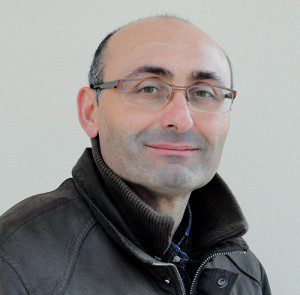
Music to say ‘Hello!’
Ciantar explains that ‘by listening to and exploring music from different countries we can understand other cultural and social realities. Music opens infinite thinking modes unknown to us and uncovers situations we wouldn’t otherwise experience.’ According to him, ‘music can highlight social issues or it can make a connection with different cultures when many other avenues fail’. This is the acceptance of ‘otherness’, the concept of what makes us different from each other culturally and socially. Music can be a very effective medium.
Acceptance of different cultures needs to be taught from a young age. Music can help in showing people the advantages of multiculturalism. Ciantar suggests that, at school, children can be taught instruments used in different cultures. This would help students understand and appreciate not just the instruments but also the musicians playing them. He continues, ‘you need to be open to other opinions, cultures, and traditions’ and music provides the right scenario.
Understanding music globally should lead to appreciation of diverse sounds and how they are made, communicated, and transformed into meaning. The musical process reveals humanity and here otherness surfaces as a challenge for us to deal with. It is up to us to then connect with different cultures we might consider alien.
People come together through music. The village feast is Malta’s best example of unity through music. During a feast a quiet pjazza transforms into a music concert, a fireworks festival, and a food extravaganza — uniting the whole community. These celebrations bring people together ignoring their differences.
Multiculturalism is a worldwide phenomenon. Malta is becoming multicultural and, as Ciantar comments, ‘music is an indicator of what is going on. Performances of African music at the Marsa Open Centre can be interpreted as a plea for social acceptance and cultural integration. Slavic street players in Republic Street play Bach’s violin partitas to make us connect with them culturally. Once we are connected they play a nostalgic lullaby from their homeland to make us feel the pain of distance and sympathise with them. Undoubtedly, music serves as a social text; in itself, an intriguing sonic document that links the evident with the untold or even ignored.’ This is the power of music and the concept of otherness that can shape our thoughts on multiculturalism and readiness to accept others’ views.
“Undoubtedly, music serves as a social text; in itself, an intriguing sonic document that links the evident with the untold or even ignored”
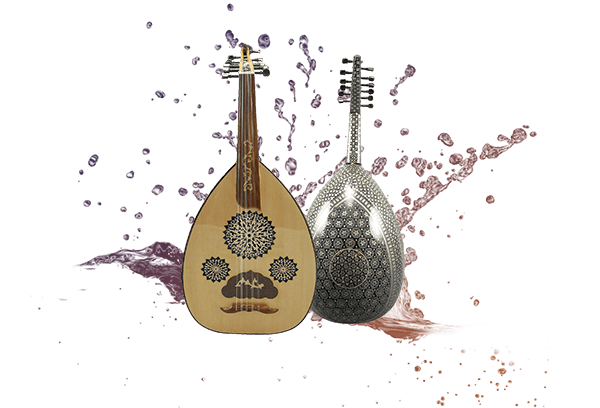
He became even more aware of multiculturalism while conducting his Ph.D. research. He went to Libya to experience different cultural backgrounds and traditions. He worked with Libyan musicians, attending their rehearsals, talked to people on Tripoli’s streets about the musical tradition of ma’lūf (a tradition valued for its Andalusian legacy), and sneaked in percussion performances with Libyan musicians. Apart from writing a book, these experiences helped Ciantar understand otherness and the challenges it implies.
Ciantar’s first experience with ethnomusicology and otherness goes back to 1991, when he was inspired by the writings of John Blacking and Bruno Nettl, and started researching Maltese folk music għana. He saw how the għanejja performed in two different contexts and their music changed accordingly. The music they sang was more elaborate in their regular bars when compared to stage music with an unknown audience.
Otherness can also be scrutinised through musical translation. Ciantar researches musical translation: how we digest and eventually accept music that might not be initially appealing to us. Recently, he composed a Maltese festa band march out of tunes that he had recorded in Libya. The process allowed him to investigate the music and himself. He had to take elements of one musical tradition and apply it to another that was culturally remote, using himself to understand the process of how a person thinks and transforms thought into music.
Ciantar is very hopeful of the musical evolution in Malta as this is being influenced by the different cultures that people encounter everyday. This will create a more varied musical scene. Ciantar can already feel the difference.
Stephanie Mifsud is part of the Department of English Master of Arts programme.
[ct_divider]
Find out more:
-
‘The Process of Musical Translation: Composing a Maltese Festa Band March from Libyan Ma’lūf Music’, Ethnomusicology, 57(1): 1-33 (2013).
-
The Ma’lūf in Contemporary Libya: An Arab Andalusian Musical Tradition. Burlington, VT: Ashgate. (2012).
-
‘From the Bar to the Stage: Socio-cultural Processes in the Maltese Spirtu Pront.’ Music and Anthropology in the Mediterranean Online (2000)


